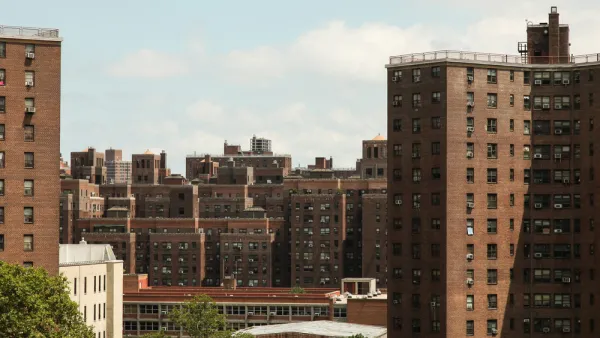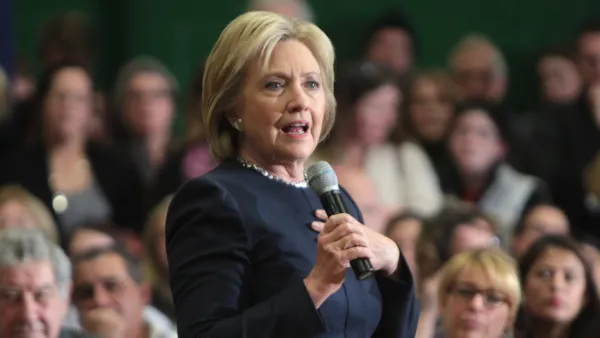Donald Trump's first major economic speech showed significant changes, including how he'd pay for his hefty infrastructure plan. Both he and Hillary Clinton will likely be relying on the same funding source.
It was only last week that Donald Trump told Fox Business that he'd pay for his $500 billion infrastructure plan through borrowing. Like many positions and declarations coming from the billionaire's campaign, it didn't last long.
Trump unveiled his economic plan Monday at the Detroit Economic Club, adopting GOP tax cuts.
"He also says he wants U.S. companies to repatriate their foreign cash, proposing a one-time tax holiday that would allow them to pay just 10 percent to bring their cash home," reports Patti Domm, CNBC executive news editor. "That money would be used to pay for infrastructure."
The tax should sound familiar. Both House Speaker Paul Ryan (R-Wis.), Sens. Barbara Boxer (D-Cali.) and Rand Paul (R-Ky.), and President Obama looked to the same source to fund their transportation reauthorization packages, though they used different forms of it. Ultimately, neither was used to fund the FAST Act.
"[Both Trump and Clinton] could look to the repatriation tax holiday for the $2 trillion stashed overseas to cover some of the costs of their proposed infrastructure spending, according to Dan Clifton, head of policy research at Strategas.
Like the FAST Act approved last December, it's Congress that ultimately writes and approves spending bills.
Clinton also proposed an infrastructure bank to help fund her plan, dissected here.
There are major differences between the two candidate's infrastructure plans, reported Domm on July 28.
Both candidates want to boost infrastructure spending, with the Republicans more focused on roads and bridges than mass transit. Clinton, on the other hand could be more favorable for railroads.
Differences also compared on The Transport Politic via Planetizen.
FULL STORY: Clinton, Trump both would build infrastructure, likely pay for it the same way

Analysis: Cybertruck Fatality Rate Far Exceeds That of Ford Pinto
The Tesla Cybertruck was recalled seven times last year.

National Parks Layoffs Will Cause Communities to Lose Billions
Thousands of essential park workers were laid off this week, just before the busy spring break season.

Retro-silient?: America’s First “Eco-burb,” The Woodlands Turns 50
A master-planned community north of Houston offers lessons on green infrastructure and resilient design, but falls short of its founder’s lofty affordability and walkability goals.

Test News Post 1
This is a summary

Analysis: Cybertruck Fatality Rate Far Exceeds That of Ford Pinto
The Tesla Cybertruck was recalled seven times last year.

Test News Headline 46
Test for the image on the front page.
Urban Design for Planners 1: Software Tools
This six-course series explores essential urban design concepts using open source software and equips planners with the tools they need to participate fully in the urban design process.
Planning for Universal Design
Learn the tools for implementing Universal Design in planning regulations.
EMC Planning Group, Inc.
Planetizen
Planetizen
Mpact (formerly Rail~Volution)
Great Falls Development Authority, Inc.
HUDs Office of Policy Development and Research
NYU Wagner Graduate School of Public Service




























